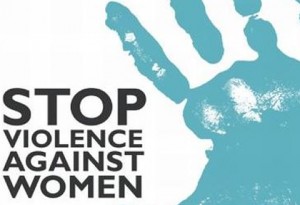COVID-19 has increased SGBV victims – UNFPA
 Although COVID-19 has increased more victims of sexual and gender-based violence (SGBV) and worsened their plight, it has also generated interest among stakeholders to totally wipe it out, Dr. Natalia Kanem, the UNFPA Executive Director has said.
Although COVID-19 has increased more victims of sexual and gender-based violence (SGBV) and worsened their plight, it has also generated interest among stakeholders to totally wipe it out, Dr. Natalia Kanem, the UNFPA Executive Director has said.
“I was worried about how much COVID-19 increased cases of SGBV but the good thing is that in Nigeria and many parts of the world, the call for justice and involvement of police and all relevant stakeholders to put a stop to this abuse is a positive milestone.”
She made the remark in an interview over SGBV and the UN’s 16 days of Activism against it, while she had joined Nigeria to observe the 2021 days of activism against SGBV.
Dr Kanem said it was a shame to discuss the prevalent crime of violence against women when the world was still moving forward.
However, she said the COVID-19 outbreak coupled with its lockdown, scaled up the inhuman act, which led to many consequences like unwanted pregnancies, girls being subjected to early marriages as a result of being out of school, female genital mutilations, sexually transmitted infections, a condition she described as a ‘public and violent crisis’.
She condemned the stigma associated with courageous victims who shared their agonies for justice to be served, and called on nations, individuals, and corporate institutions to work towards discouraging the stigma.
Dr Kanem, who is also the UN-Under Secretary General, described the finding as “alarming”, explaining that the lack of bodily autonomy threatened women’s safety, potentially reduced economic productivity, and resulted in extra costs to a country’s healthcare and judicial systems.
The report, titled, ‘My Body is My Own’, considered women’s power to make their own decisions about their bodies and the extent to which countries’ laws supported or interfered with that right.
The report disclosed that in the 57 developing countries where data was available, 45 per cent of women were not fully empowered to make choices over healthcare, contraception, and whether or not to have sex.
In some countries – Mali, Niger, and Senegal, it found out more than 90 per cent of women were deprived of their bodily autonomy, the report said.
“The fact that nearly half of women still cannot make their own decisions about whether or not to have sex, use contraception or seek health care should outrage us all,” Dr. Kanem said.
In terms of laws that constrained women, the report revealed that 20 countries or territories worldwide had “marry-your-rapist” laws, where a rapist could escape criminal prosecution if he married the woman or girl he raped, while 43 countries had no legislation addressing the issue of marital rape.
Moreover, more than 30 countries across the world restricted women’s right to move around outside the home.
Dr. Kanem said many of the shortfalls in bodily autonomy had worsened as a result of the COVID-19 pandemic.
“The denial of bodily autonomy is a violation of women and girls’ fundamental human rights that reinforces inequalities and perpetuates violence arising from gender discrimination,” she said.
“It is nothing less than an annihilation of the spirit, and it must stop.”
Source: GNA
